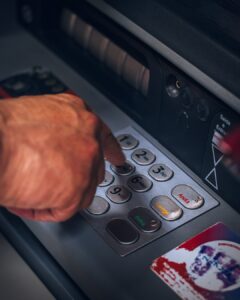How to Start Forex Trading: A Beginner’s Guide
Forex trading, also known as foreign exchange trading, is a way to profit from the fluctuation in currency prices. It is one of the largest and most liquid financial markets in the world, with trillions of dollars traded daily. If you are a beginner interested in forex trading, this guide will help you get started and navigate the complexities of the market.
1. Educate Yourself:
Before diving into forex trading, it is crucial to educate yourself about the market and its intricacies. Start by understanding the basic terminology, such as currency pairs, pips, leverage, and margin. Familiarize yourself with the different trading strategies and technical analysis tools used by traders. There are numerous online resources, books, and courses available that can provide you with the necessary knowledge to make informed trading decisions.
2. Choose a Reliable Broker:
Selecting the right forex broker is essential for a successful trading journey. Look for brokers that are regulated by reputable financial authorities, as this ensures the safety of your funds. Consider factors such as trading platforms, spreads, commissions, customer support, and the availability of educational resources. It is advisable to open a demo account with a few different brokers to test their platforms and services before committing real money.
3. Develop a Trading Plan:
Creating a trading plan is crucial for long-term success in forex trading. A trading plan outlines your trading goals, risk tolerance, and strategies. It helps you stay disciplined and avoid impulsive decisions based on emotions. Your trading plan should also include money management rules that define how much capital you are willing to risk on each trade and how to manage your profits and losses. Stick to your trading plan religiously to minimize the impact of market volatility.
4. Start with a Demo Account:
A demo account is a great way to practice forex trading without risking real money. Most brokers offer demo accounts with virtual funds that simulate real market conditions. Use this opportunity to test different strategies, understand the functionality of trading platforms, and gain confidence in your trading abilities. Treat the demo account as seriously as you would a live account, and track your performance to identify areas for improvement.
5. Learn Technical and Fundamental Analysis:
Technical analysis involves studying historical price data to identify patterns and trends that can help predict future price movements. It uses various indicators, charts, and tools to make trading decisions. Fundamental analysis, on the other hand, focuses on analyzing economic, social, and political factors that influence currency values. Understanding both types of analysis will give you a comprehensive view of the market and enhance your trading decisions.
6. Start Small and Manage Risk:
When you are ready to trade with real money, start with a small capital that you can afford to lose. Forex trading involves risks, and it is essential to manage them effectively. Use appropriate risk management techniques such as setting stop-loss orders to limit potential losses. Avoid risking a significant portion of your capital on a single trade, as this can lead to substantial losses. It is advisable to risk no more than 1-2% of your trading capital on any given trade.
7. Keep Learning and Adapting:
Forex trading is a dynamic and ever-evolving market. Stay updated with the latest news, economic indicators, and market trends that can impact currency prices. Continuously educate yourself and adapt your trading strategies based on market conditions. Join online trading communities, participate in forums, and follow experienced traders to gain insights and learn from their experiences.
In conclusion, starting forex trading as a beginner requires proper education, selecting a reliable broker, developing a trading plan, practicing with a demo account, learning technical and fundamental analysis, managing risks, and continuously learning and adapting. Forex trading can be profitable and exciting if approached with the right mindset, discipline, and knowledge.






